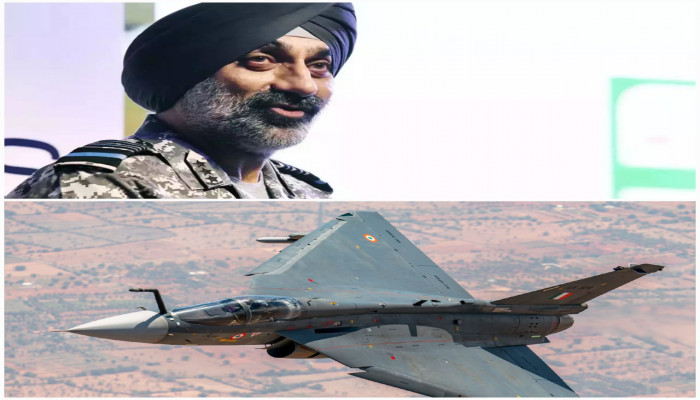‘Still waiting for Tejas jets that were ordered in 2010’: IAF Chief
- In Reports
- 05:46 PM, Jan 08, 2025
- Myind Staff
India is facing increased security threats from its neighbours China and Pakistan, which are worsened by the region's fast military developments. The Indian Air Force (IAF) Chief raised worry over the delayed delivery of 40 Tejas fighter jets scheduled in 2010.
Despite advances in native defence manufacture, the delay hampers the modernisation of the IAF fleet. Hindustan Aeronautics Limited (HAL) created the Light Combat Aircraft (LCA) Tejas, which is an essential aspect of India's effort for self-reliance in defence.
Speaking spoke at the 21st Subroto Mukherjee Seminar in New Delhi, IAF Chief Air Chief Marshal A.P. Singh voiced concerns about India's ability to keep up with the changing threat.
“The world today is in a precarious position dominated by conflicts and contests. We have our own security concerns on the western and northern borders with increased militarisation by China and Pakistan,” Singh expressed at the seminar.
China's latest military technological breakthroughs consist of the inaugural flight of two sixth-generation stealth fighter aircraft on December 26 in Chengdu. Videos showing these light, skilled combat aircraft travelling at low altitudes have sparked concern worldwide, especially in the United States, which has yet to complete its sixth-generation fighter project. The display highlights China's expanding strength, which has already been proved by deploying fifth-generation Chengdu J-20 aircraft to airfields close to the Indian border in Hotan and Shigatse.
Singh commented, following China’s new technological advancement, “China is investing heavily in its air force. The recent unveiling of its new stealth aircraft is a case in point.”
India's dependency on foreign defence equipment has always been an obstacle. Despite accomplishments under the "Atmanirbhar Bharat" (self-sufficient India) campaign, establishing strategic independence in defence technology remains difficult. The IAF has worked with micro, small, and medium enterprises (MSMEs) to manufacture almost 50,000 parts for the Base Repair Depots, proving effective indigenisation operations.
Singh acknowledged the economic implications of self-reliance, stating, “Atmanirbharta will come at a cost, and we should accept it. We may have to spend more and buy at a higher rate if required. Amortising of the R&D part and limited numbers will push the cost up but will give the much-needed self-reliance.”
Singh encouraged governments to acknowledge the risks and probable failures associated with R&D, emphasising the strategic necessity of timely innovation. “There has to be an increased aptitude for acceptance of risks involved and failures in R&D,” he said.







Comments